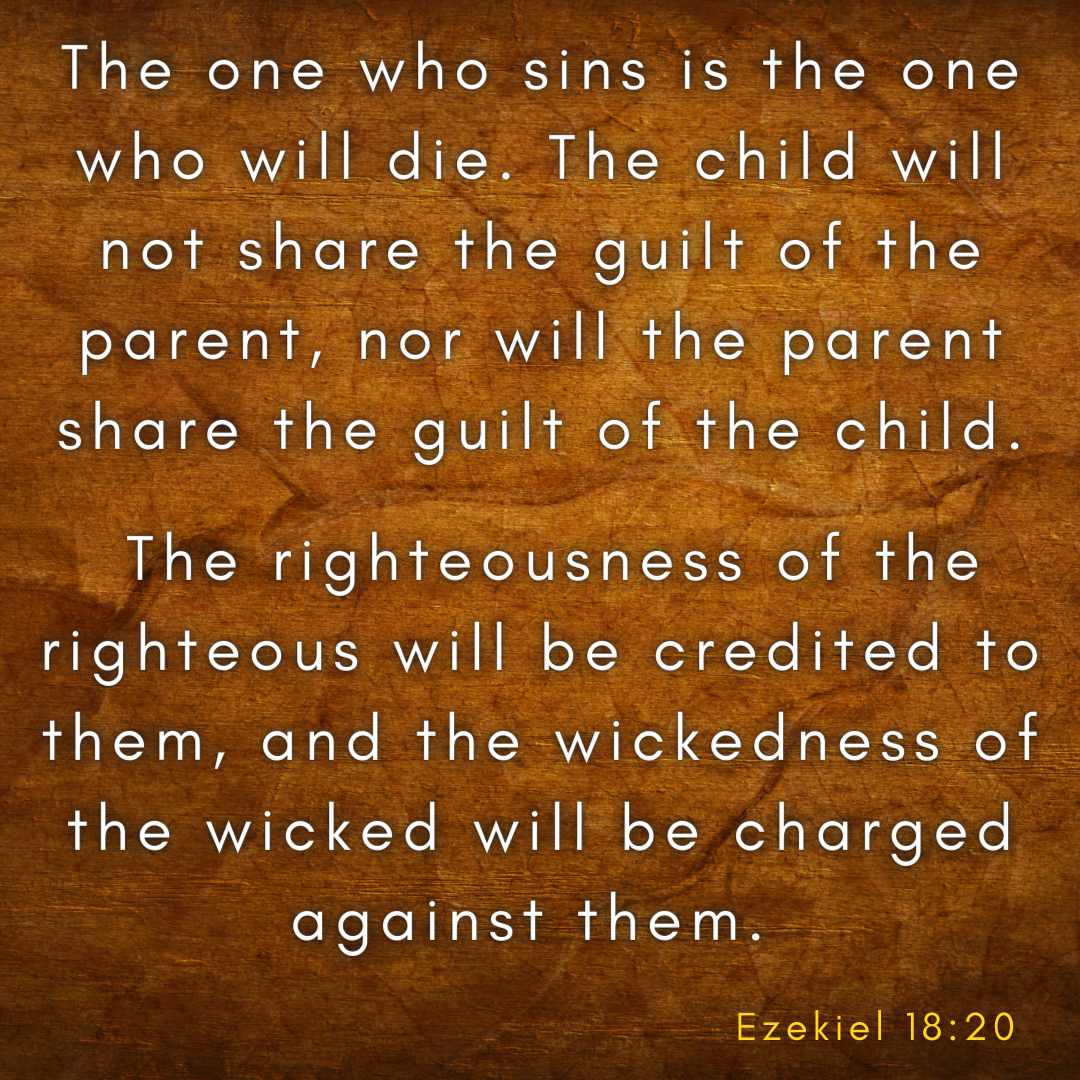“The one who sins is the one who will die. The child will not share the guilt of the parent, nor will the parent share the guilt of the child. The righteousness of the righteous will be credited to them, and the wickedness of the wicked will be charged against them.” Ezekiel 18:20
Context
This verse comes from a chapter in which the prophet Ezekiel addresses a common proverb among the exiled Israelites: “The parents eat sour grapes, and the children’s teeth are set on edge.” (Ezekiel 18:2)
This proverb implies that the children are suffering for the sins of their ancestors, and that God is unjust in punishing them. Ezekiel rejects this proverb and declares that God judges each person according to their own deeds, not according to their family history.
He also affirms that God does not delight in the death of the wicked, but rather desires them to repent and live. (Ezekiel 18:23)
The Message
What can we learn from this verse and its context? First, we can learn that God is fair and righteous. He does not hold us accountable for the sins of others, nor does He let us off the hook for our own sins.
He evaluates us individually, based on our choices and actions. He does not show favoritism or partiality, but treats everyone equally and impartially. He is the perfect judge, who knows everything and sees everything.
Second, we can learn that we are responsible and accountable. We cannot blame our parents, our children, our circumstances, or anyone else for our sins.
We cannot rely on our heritage, our status, our achievements, or anyone else for our righteousness. We have to face the consequences of our own decisions and actions.
We have to answer to God for our own lives. We have to repent and obey God for our own salvation.
Third, we can learn that God is gracious and merciful. He does not want us to perish, but to live.
He does not take pleasure in our suffering, but in our joy. He does not condemn us, but offers us forgiveness.
He does not reject us, but welcomes us. He does not leave us, but helps us. He does not give up on us, but restores us. He does not hate us, but loves us.
Application
How can we apply this verse and its message to our lives? Here are some suggestions:
• Examine yourself. Ask God to search your heart and reveal any sin that you need to confess and forsake. Do not justify, rationalize, or minimize your sin, but admit it and repent of it.
Do not compare yourself with others, but measure yourself by God’s standards. Do not presume on God’s grace, but appreciate it and respond to it.
• Trust God. Believe that God is fair and righteous, and that He will judge you and others according to His justice.
Do not doubt, question, or resent God’s ways, but accept them and submit to them. Do not fear, worry, or despair about God’s wrath, but hope in His mercy and love.
• Follow God. Obey God’s commands and do what is right in His sight. Do not rebel, disobey, or compromise with sin, but resist it and overcome it. Do not conform, imitate, or follow the world, but be transformed and renewed by God’s Spirit.
Do not seek, love, or serve the things of this world, but seek, love, and serve God and His kingdom.
The soul that sins shall die, but the soul that repents and believes shall live. This is the message of Ezekiel 18:20, and this is the message of the gospel. Let us heed it and live by it.
~ Check Out ~
“One Minute with God”

